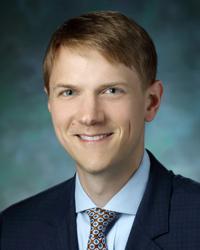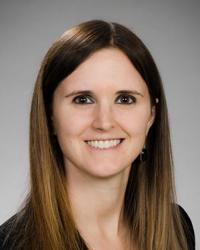Research Lab Results
-
Charles Hugh Brown Lab
The Charles Hugh Brown Lab researches cognitive dysfunction, with a focus on quality of care and outcomes regarding perioperative management of older patients. Our studies explore post-operative delirium, cognitive changes and transfusion practices. We also have a longstanding interest in cerebral autoregulation and its role in post-surgical outcomes.
-
Multiple Sclerosis Rehabilitation Research Program
Abbey J. Hughes, Ph.D., and Meghan Beier, Ph.D., are clinical psychologists, co-investigators and grant-funded clinical researchers specializing in neurorehabilitation psychology and multiple sclerosis. Dr. Hughes' research focuses on health behaviors and their impact on cognitive dysfunction in people with multiple sclerosis. Dr. Beier's research focuses on characterizing emotional and cognitive symptoms common among people with MS, refining neuropsychological assessment techniques, and developing interventions to ameliorate or slow MS-related cognitive decline. -
The Bigos Lab
The Bigos Lab focuses on a Precision Medicine approach to the treatment of psychiatric illness. In addition, this lab employs functional neuroimaging and genetics as biomarkers in neuropsychiatric drug development. A recent study used functional MRI to test the neural effects of a drug with the potential to treat cognitive dysfunction in schizophrenia. Other studies aim to identify patient-specific variables including sex, race, and genetics that impact drug clearance and clinical response to better select and dose antipsychotics and antidepressants.
-
Neuromodulation and Advanced Therapies Center
We investigate the brain networks and neurotransmitters involved in symptoms of movement disorders, such as Parkinson's disease, and the mechanisms by which modulating these networks through electrical stimulation affects these symptoms. We are particularly interested in the mechanisms through which neuromodulation therapies like deep brain stimulation affect non-motor brain functions, such as cognitive function and mood. We use imaging of specific neurotransmitters, such as acetylcholine and dopamine, to understand the changes in brain chemistry associated with the clinical effects of deep brain stimulation and to predict which patients are likely to have changes in non-motor symptoms following DBS. Through collaborations with our neurosurgery colleagues, we explore brain function by making recordings during DBS surgery during motor and non-motor tasks. Dr. Mills collaborates with researchers in the Department of Neurosurgery, the Division of Geriatric and Neuropsychiatry in the Department of Psychiatry and Behavioral Sciences and in the Division of Nuclear Medicine within the Department of Radiology to translate neuroimaging and neurophysiology findings into clinical applications.

